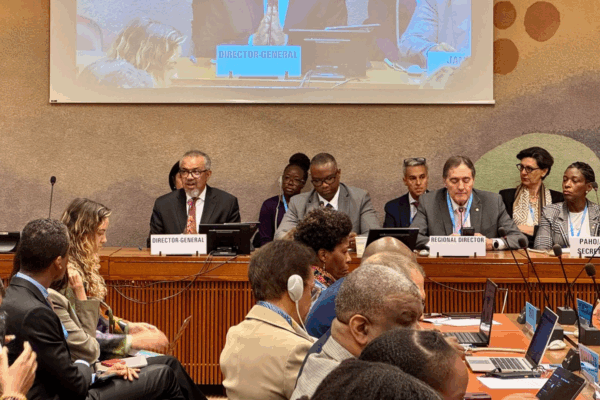What the G20 Leaders’ Declaration says about air pollution
The recent G20 leaders’ declaration notes the importance of tackling climate change and addressing the risks from air pollution. Leaders also endorsed the historic G20 Cape Town Declaration on Air Quality from October.
The G20 has said that cleaning our air must be a global priority. Leaders’ endorsement of the declaration is a turning point. It matches recognition of air pollution’s vast impacts with recognition of the concrete steps to tackle it: through better data, stronger capability and cooperation that crosses borders. It proves that even in a difficult geopolitical moment, the world can agree that everyone should have the right to breathe clean air.
Jane Burston, CEO of Clean Air Fund
The Cape Town declaration on air quality
In October, G20 Environment and Climate Ministers adopted a landmark declaration on air quality, which put air quality on the G20 agenda as a standalone priority for the first time.
The declaration highlights the importance of collaboration by G20 members and the wider international community to improve monitoring and access to open, reliable air quality data; to cooperate on transboundary pollution; to share best available technologies, and to scale up support for the most vulnerable communities affected by air pollution. It also proposes further technical cooperation and information sharing among G20 members. These are the right building blocks for faster, fairer progress.
Clean air: achievable, affordable and urgent
Air pollution now kills more people every year than tobacco and HIV, with a child under 5 dying every minute due to dirty air. Under current levels of funding and existing policies, air pollution is projected to worsen.
Yet reducing air pollution is both achievable and affordable – and momentum is growing. According to the World Bank, countries could halve exposure to harmful PM2.5 pollution by 2040 by combining decarbonisation with conventional clean-air measures. That would save up to two million lives a year.
Earlier this year, governments backed the WHO’s target to halve premature deaths from all air pollution by 2040. The G20’s declaration builds on this and demonstrates growing commitment and action globally.
A turning point for global clean air action
South Africa’s Presidency has elevated the issue of air pollution and secured a practical package focused on better data, capacity and cooperation across borders. Clean Air Fund is proud to have supported the South African Presidency as a knowledge partner, including contributing to the G20 technical paper that informed ministers’ deliberations.


